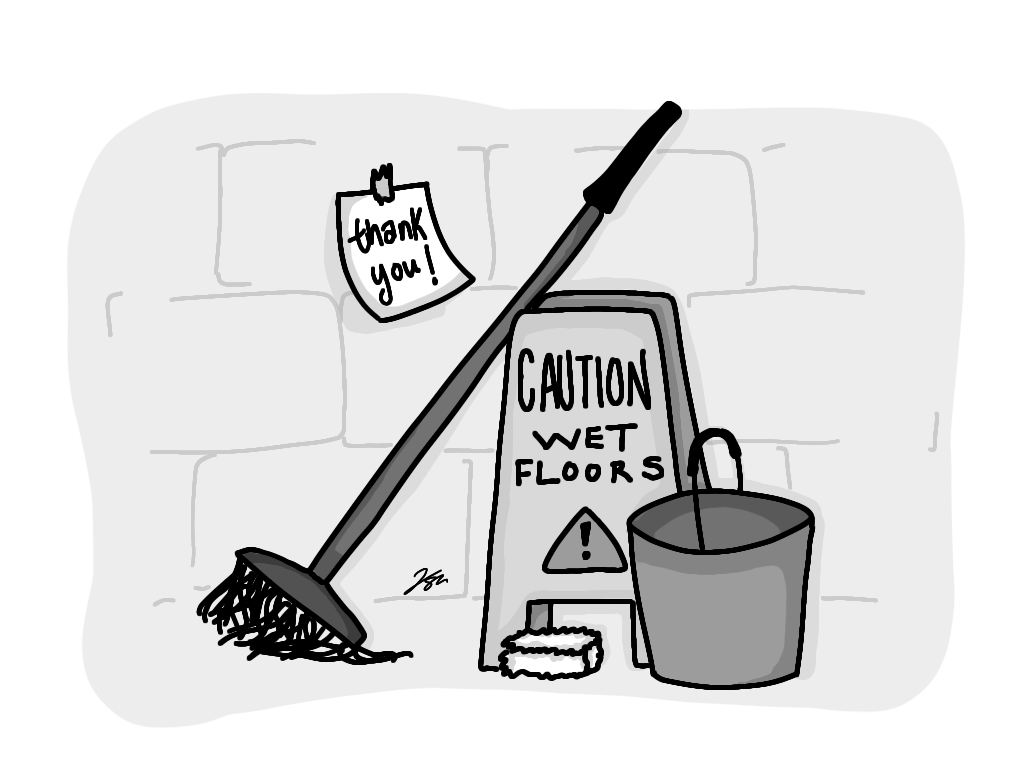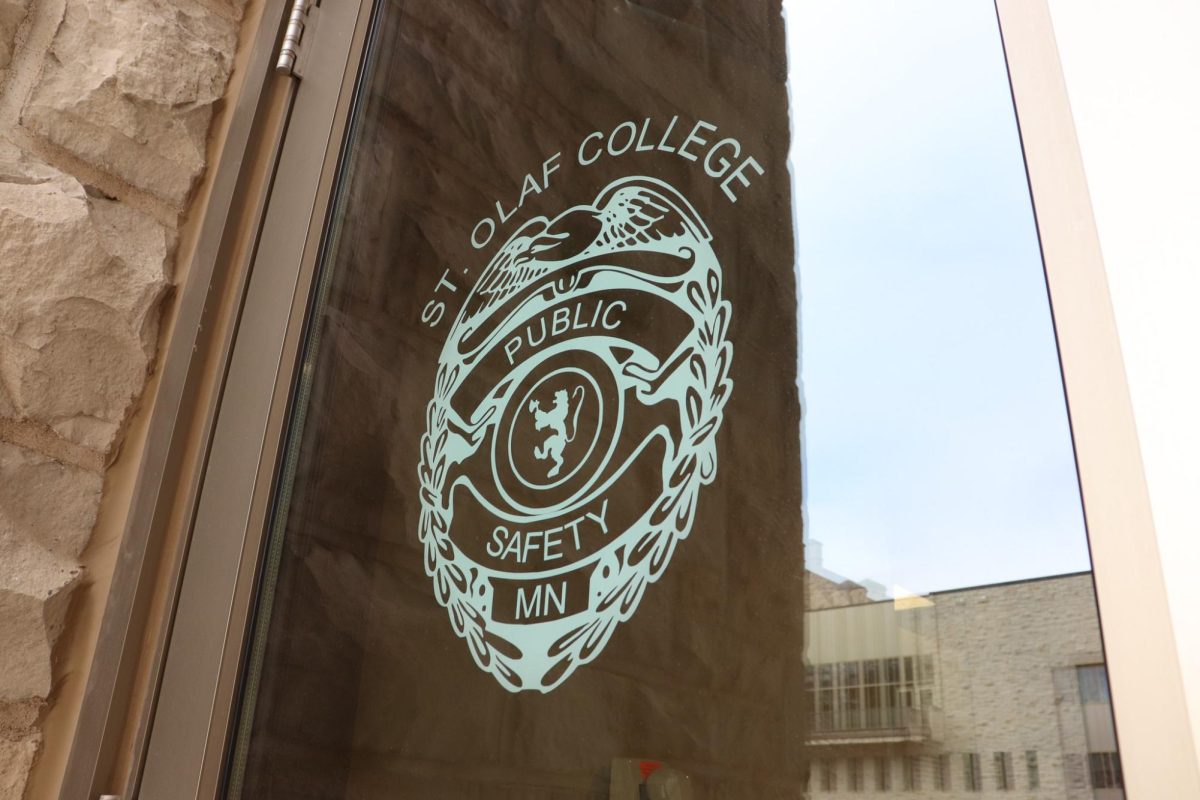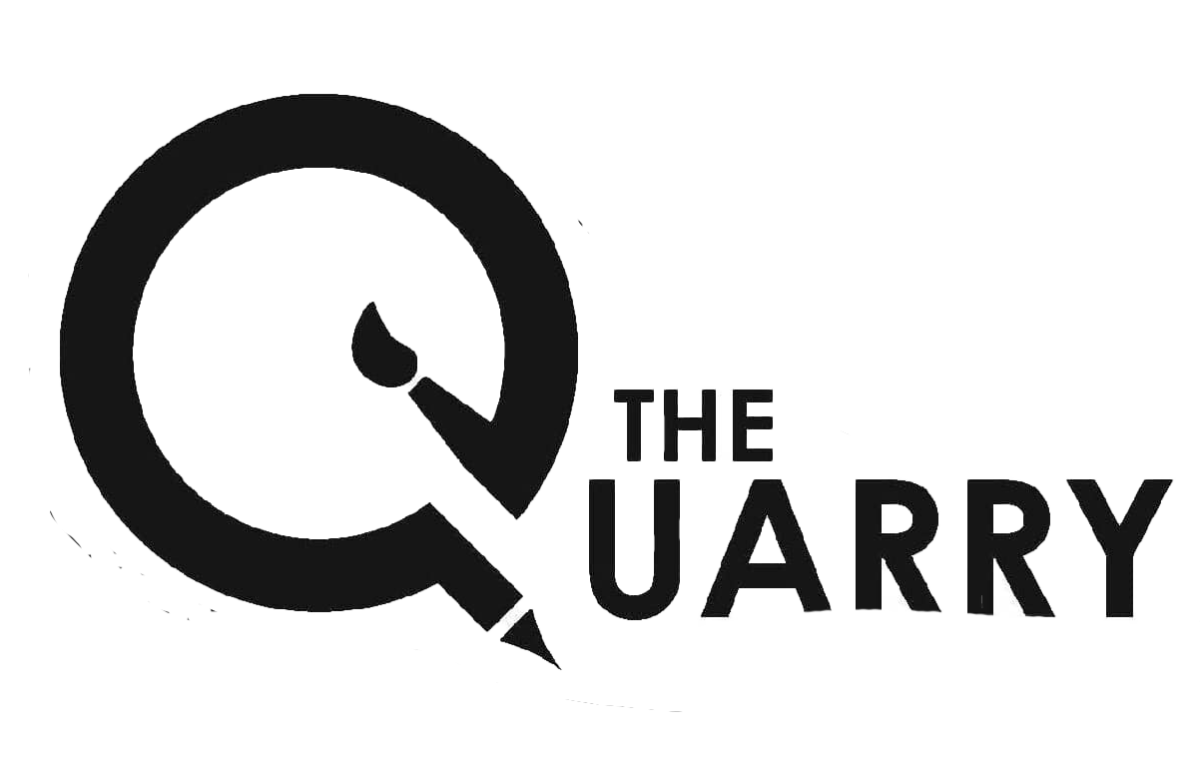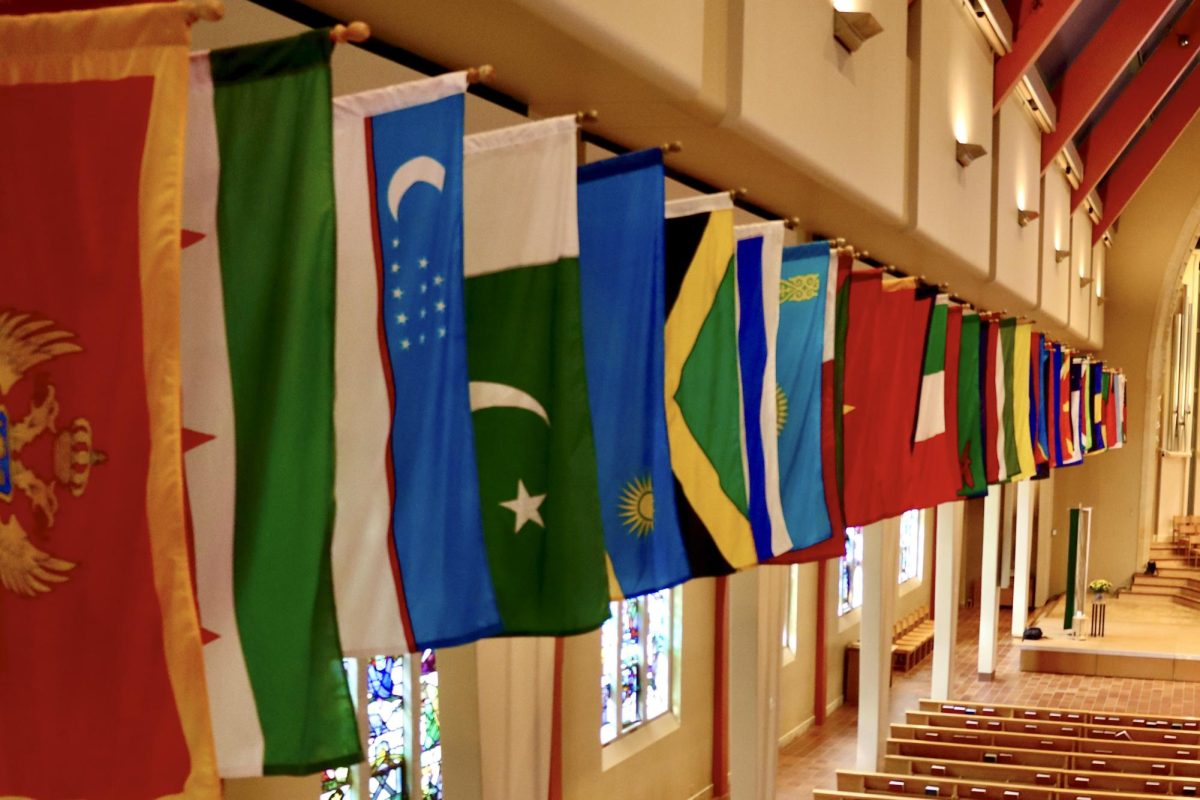“Visualizing Palestine,” a film festival showcasing Palestinian films, made St. Olaf College home to a vibrant celebration of Palestinian culture and art from Nov. 14 to 16. The three-day event hosted by Director of Film and Media Studies and Associate Professor of English Linda Mokdad and her students in ENGL 200C: Writing/Visualizing Palestine, featured four films by Palestinian creators, a dinner catered by a local restaurant, and live music from Carleton College musicians.
The festival was the culmination of a semester-long project by the class, participants of which took charge of every aspect of planning. Students selected the films, contacted film agencies, designed marketing materials, and coordinated logistics to bring the festival to life.
To gain a better understanding of what a film festival should look like, the class had an opportunity to attend the Mizna Film Festival in the Twin Cities earlier in the semester. Staff working the Mizna Film Festival included Ahmed AbdulMageed ’20, who students were able to use as a resource and connection as they developed their own festival. Through this experience, the students got insight into the creation of a film festival from contacting filmmakers to deciding which films are appropriate to share with the audience.
To prepare for the festival, the class also read Rashid Khalidi’s The 100 Years War on Palestine, which gave the class a detailed history on how the Israeli occupation in Palestine started and continued from 1917 to 2017.
In an interview with The Olaf Messenger, Caroline Beail ’25, a student in the class, described the festival as largely a collaborative effort amongst the entire class, with different committees working on different aspects of the project.
“It was a very collaborative process… I don’t want to give the impression that it was everyone off in their own, separate spheres. Everything definitely happened through large-group collaboration,” Beail said.
Beail herself was a member of the planning committee, which handled logistics such as figuring out food, where the film festival would take place, and reserving the rooms once locations had been decided.
In addition to the logistics side, there was also a marketing committee that worked on creating the program, getting the rods, making and distributing posters and a screening committee that helped to select the films and acquire the rights to have them shown.
Classmate Kendall Biermann ’27, who was on the screening committee, spent a significant amount of time contacting distributors. The final number of films, while smaller than initially planned, is something Biermann is very happy with. Her favorite film is titled “From Ground Zero,” an anthology film directed by 22 Gazans.
“It’s very fascinating, and it’s all new art made since Oct. 7th. It just shows what is happening on the ground,” Biermann said.” I feel like too many people don’t understand the level of devastation that is happening.”
Both Beail and Biermann agreed that hosting events like this is incredibly important, as they highlight how in the face of such traumatic events, Palestinians still are able to create art that highlights their humanity and culture. This is something that, as Beail points out, is an incredibly unique process.
“There is no space to make sets or make really elaborate costumes… A lot of Palestinian film is just very organic and authentic because it’s just, you know, people picking up a camera and filming what’s happening around them,” Beail said.
Baeil admits that while most people coming into the film festival have somewhat of a sense of what’s happening in Palestine currently, she points out that many people have compartmentalized the trauma.
“It’s so tempting to just compartmentalize it and block it out,” Beail said. “…this is a really great space to not just see what we see on social media – which is the really hard, heart-breaking stuff – but also it’s also in a medium that shows it with more dimension.”





